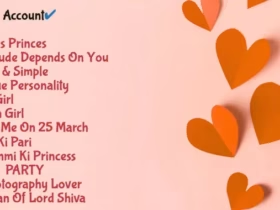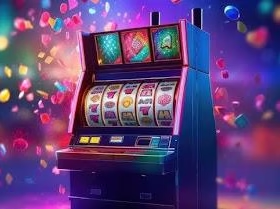The future of online entertainment isn’t coming—it’s already here. And it’s wearing the face of blockchain. What once sounded like a niche financial experiment has now morphed into a digital foundation reshaping how we play, spend, stream, and engage with content online. It’s subtle at first glance, but the shift is deep. From gaming to music, from streaming platforms to digital art, blockchain is quietly rewriting the rules.
Let’s start with one of the most obvious places this transformation is happening: gaming. Not the single-player kind you download once and forget, but the ever-expanding world of online multiplayer titles, casino platforms, and competitive environments that thrive on trust and fairness. Blockchain didn’t invent online entertainment, but it’s making it smarter, more transparent, and harder to manipulate.
Take the example of digital casinos
Once reliant solely on centralized systems that required blind faith in the fairness of algorithms, these platforms are now experimenting with blockchain-backed solutions. A site like 888slot, for instance, operates in an industry where user trust is everything. Players want to believe the games are fair—but belief alone isn’t enough anymore. Blockchain offers proof.
Smart contracts—self-executing digital agreements—are now powering parts of online gaming infrastructure, including random number generation (RNG), the critical technology that determines outcomes in slot games and other gambling mechanics. With smart contracts, the logic behind these RNGs can be inspected by anyone. That makes manipulation nearly impossible and shifts trust from brand reputation to mathematical certainty. If a jackpot hits, there’s no room for “maybe.” It’s on-chain, verifiable, and fair.
But blockchain doesn’t stop at fairness
It unlocks ownership. In the old model, gamers poured hours into their favorite games, unlocking skins, items, and characters—only to realize they never truly owned any of it. Shut down the server, and your prized collection vanishes. That’s changing. Now, with blockchain, players can actually own their in-game assets in the form of NFTs (non-fungible tokens). These digital items can be bought, sold, traded, or even carried from one platform to another—something unimaginable in traditional gaming models.
Even classic casino-style platforms are joining the shift. NFT-based lotteries are being tested as a fresh mechanic to engage players. Gaming assets—like slot reels, themes, or exclusive bonus triggers—are being sold as limited-edition tokens, giving users both functionality and status. These aren’t just digital gimmicks. They’re part of a new ecosystem where participation feels more like investment than consumption.
Platforms such as slot88, traditionally rooted in centralized models, are now testing blockchain integrations as a path toward innovation. By implementing decentralized payment systems, they not only reduce reliance on banks but also offer faster, borderless transactions. That means players from different countries can join in, use crypto wallets, and receive payouts with fewer delays and fees. It’s not just modern—it’s global by design.
One of the strongest appeals of blockchain in entertainment is transparency. The entertainment industry—especially online gambling—has long wrestled with trust issues. House advantage, algorithmic opacity, rigged systems—those complaints have haunted forums and support chats for years. Now, with the ledger-based structure of blockchain, anyone can trace and verify transactions, payouts, and even game outcomes. There’s nowhere for manipulation to hide, and that alone is drawing curious users to blockchain-powered alternatives.
Streaming platforms are also feeling the shift
Musicians, artists, and creators have started bypassing the traditional publishing houses and platforms by using blockchain-based services that pay them directly. Instead of getting fractions of a cent per play, artists receive crypto micro-payments straight from fans, based on real-time engagement. And since the rights to their work are embedded in the blockchain itself, it’s nearly impossible for someone to steal, reuse, or monetize it without permission.
This changes the entertainment equation. The audience no longer pays for access—they pay for value. A fan can support an artist not just with money, but with participation, loyalty, and even collaboration. Some creators now release exclusive content as NFTs, giving their biggest supporters a unique slice of their brand, their story, or their art.
In virtual reality and metaverse spaces, blockchain serves as the infrastructure for interaction. People can buy land, host concerts, or open digital shops using crypto. They can build virtual casinos, just like the real ones, with real stakes—except now, you’re not in Vegas or Macau. You’re on a virtual block, placing bets with cryptocurrency, using your custom NFT avatar, all running on a chain-powered back-end. It sounds futuristic because it is—but it’s also very real.
The connection between online gaming and blockchain becomes more personal when you realize that players are no longer just players. They’re stakeholders. Earning tokens by playing, winning prizes tied to the blockchain, voting on platform changes, or even helping fund new game features. Some games are run almost entirely by their communities, thanks to DAO models—decentralized autonomous organizations—where ownership and decisions are shared among players.
This co-ownership model is changing the tone of interaction
When players have a say, a stake, and skin in the game, they show up differently. They’re not just chasing wins—they’re contributing to the direction of the entire platform. That’s a level of engagement no traditional system could match.
Still, the adoption isn’t universal. There’s skepticism, as there always is with disruption. Blockchain can be complex, and not every user is ready to manage private keys, crypto wallets, or gas fees. That’s why traditional platforms are easing into it gradually. They’re not tossing out old systems overnight. Instead, they’re layering in blockchain tech where it makes sense—payments, fairness, asset trading—while keeping interfaces simple and familiar.
And this careful integration matters
Because the goal isn’t to make everything crypto. The goal is to make entertainment better. More open. More secure. More exciting. And maybe a little more human, in a weird, digital kind of way.
Online entertainment has always been a playground of innovation, but blockchain is giving it something new: a conscience. It’s giving users visibility into how systems work. It’s giving creators control over their work. And it’s giving players real value for their time.
The next time you spin a slot or watch a stream, pay attention. The experience might feel smoother, faster, more trustworthy. It might offer you rewards that don’t just live on the screen but follow you outside the app. And behind all of that, quietly doing the heavy lifting, might be a few lines of smart contract code—working, verifying, protecting.
That’s not a vision anymore. That’s happening. And it’s only just beginning.








